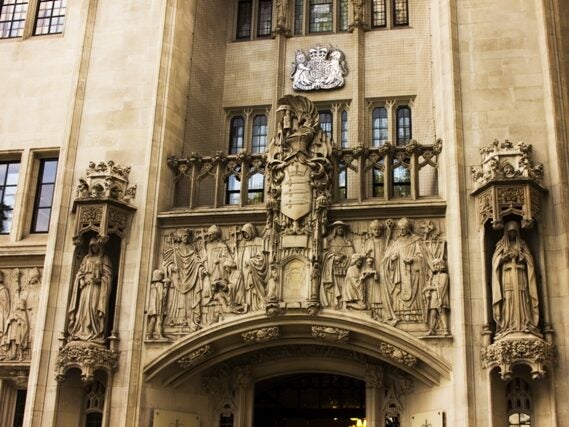
The Supreme Court is being urged to overturn the conviction of a journalistic source in a case which could have wide-ranging implications for UK freedom of speech.
It is effectively being argued that judges need to step in and provide protection for journalistic sources because newspaper publishers are no longer willing to honour the “gentleman’s agreement” that once existed.
Former Belmarsh prison officer Robert Norman is seeking to overturn his conviction for misconduct in public office after the Daily Mirror paid him £10,684 over five years for 40 pieces of information.
Norman contends that all the information he divulged was in the public interest.
He was sentenced to 30 months prison in June 2015 after publisher Trinity Mirror voluntarily revealed details of his relationship with the paper to the Metropolitan Police.
Norman is one of 32 public officials convicted after Trinity Mirror and News Corp released details of payments apparently in order to avoid corporate prosecutions under Operation Elveden.
In his appeal document, lawyer Keir Monteith, of Garden Court Chambers, warns that Norman’s conviction will have a chilling effect on freedom of speech by deterring sources from providing information to journalists.
It also questions whether Trinity Mirror breached his rights under Article 10 of the European Convention, freedom of speech, by revealing that he was a confidential journalistic source.
The Supreme Court is being asked to provide new guidance on the legal interplay between the state, a free press and the individual and “the extent to which those in positions of power can be properly held to account”.
Monteith argues that conviction of Norman has “undermined the historic protection of journalistic sources”.
He said: “It is submitted that the effect of R v Norman will be to leave all journalistic sources and journalists concerned that their identity could be disclosed to the state for prosecution by the company the journalist works for.
“Consequently it is likely that potential sources will not contact or co-operate with the media and journalists will not contact those that are or might be public officials.”
He argues that Norman’s conviction was in breach of Article 10 because Trinity Mirror unilaterally decided to reveal his identity to the police, rather than waiting for the police to make an application under the Police and Criminal Evidence Act.
Such an application under PACE would have allowed a judge to weigh up the case for overriding Norman’s Article 10 rights.
Monteith said: “It has long been assumed that the moral code of journalists not to disclose their sources, rendered adequate protection, not least because, as a matter of fact, it has.
“However, Operation Elveden brought to an end that ‘gentleman’s agreement’ and R v Norman now establishes a precedent for voluntary source disclosure…where the company concerned was disclosing sources in order to avoid prosecutions ‘further up the tree’ or where the payment was made.”
The appeal also questions whether Norman accepting money from Trinty Mirror for stories was “serious criminal conduct”.
Monteith said: “Historically the payment of money to sources has been compensation for the risks of providing information and has operated as an established contractual method of investigative journalism.
“In numerous circumstances this is the method used to obtain information for many of the stories that appear in the press. On occasion it will be the only method.”
He cites the “MP expenses scandal” as one example, where the Daily Telegraph paid more than £100,000 for information which led to a number of successful criminal prosecutions.
Monteith said: “This area requires further review as a delicate balancing exercise is required before concluding that exercising an Article 10 right for payment amounts to serious criminal conduct.”
Norman spoke out to Press Gazette this week about the impact prosecution has had on his life, leading him to lose his house, his liberty and having a severe impact on the health of his wife.
Email pged@pressgazette.co.uk to point out mistakes, provide story tips or send in a letter for publication on our "Letters Page" blog
